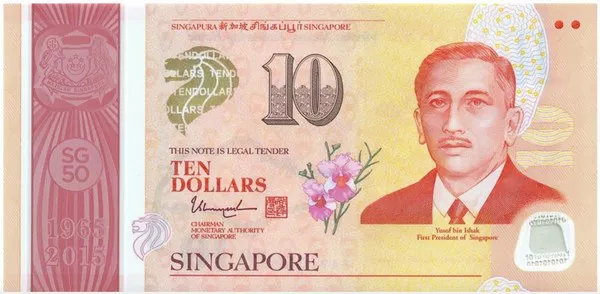Currency strength is a topic of interest for economists, investors, and individuals alike, as it reflects a country’s economic stability, trade competitiveness, and global standing. The Singapore dollar (SGD) is no exception, being the official currency of Singapore and playing a crucial role in the country’s economy. In this article, we delve into the question of whether the Singapore dollar is a strong currency, examining various factors that contribute to its strength and influence in the global financial landscape.
Understanding Currency Strength:
Currency strength refers to the relative value and stability of a currency compared to other currencies in the foreign exchange (Forex) market.
Factors influencing currency strength include economic indicators, monetary policies, fiscal measures, trade balances, inflation rates, and geopolitical developments.
A strong currency is typically characterized by appreciation against other currencies, reflecting investor confidence, economic growth, and sound macroeconomic fundamentals.
Overview of the Singapore Dollar:
The Singapore dollar (SGD) has been the official currency of Singapore since 1965, replacing the Malaysian dollar after Singapore gained independence.
Managed by the Monetary Authority of Singapore (MAS), the SGD is freely traded in the Forex market and is widely used for domestic transactions, international trade, and investment activities.
The SGD is symbolized by the abbreviation “S$” or “SGD” and is subdivided into 100 cents.
Economic Fundamentals of Singapore:
Singapore is known for its open and export-oriented economy, characterized by strong trade relations, a robust financial sector, and a favorable business environment.
Key pillars of Singapore’s economy include manufacturing, finance, trade, logistics, tourism, and technology.
Despite its small size and lack of natural resources, Singapore has achieved remarkable economic success, boasting high per capita income, low unemployment rates, and stable economic growth.
Factors Contributing to Singapore Dollar Strength:
A. Economic Stability:
Singapore’s prudent fiscal policies, transparent regulatory framework, and sound macroeconomic management contribute to the stability and strength of the SGD.
The country maintains ample foreign exchange reserves, low public debt levels, and a strong credit rating, bolstering investor confidence in the SGD.
B. Trade Competitiveness:
Singapore is a leading global trading hub, with a strong emphasis on exports of electronics, pharmaceuticals, chemicals, and financial services.
The country’s trade surplus, competitive industries, and strategic location in Southeast Asia contribute to the strength of the SGD by supporting external demand for Singaporean goods and services.
C. Monetary Policy:
The Monetary Authority of Singapore (MAS) implements a transparent and forward-looking monetary policy aimed at maintaining price stability and supporting sustainable economic growth.
MAS employs a managed float regime for the SGD, allowing it to fluctuate within an undisclosed policy band against a basket of currencies rather than targeting a specific exchange rate.
D. Financial Sector Resilience:
Singapore’s well-developed financial sector, encompassing banking, insurance, asset management, and capital markets, enhances the strength and stability of the SGD.
The country’s reputation as a global financial center, coupled with robust regulatory oversight and risk management practices, attracts foreign investment and bolsters confidence in the SGD.
E. Geopolitical Stability:
Singapore’s geopolitical stability, strategic location, and pro-business environment contribute to the strength of the SGD by fostering investor confidence and attracting foreign capital.
The country’s strong rule of law, political stability, and respect for property rights provide a conducive environment for economic growth and stability.
Impact of Exchange Rate Policies:
While the SGD is considered a strong currency, its value is influenced by MAS’s exchange rate policies, including occasional interventions in the Forex market to manage excessive volatility and ensure price stability.
MAS adopts a pragmatic approach to exchange rate management, allowing the SGD to fluctuate within a policy band while intervening when necessary to address macroeconomic imbalances or external shocks.
Regional and Global Considerations:
Singapore’s position as a regional economic powerhouse and global financial center contributes to the strength and stability of the SGD, as it serves as a safe haven currency and investment destination for international investors.
The SGD’s strength relative to other regional currencies, such as the Malaysian ringgit, Indonesian rupiah, and Thai baht, reflects Singapore’s economic resilience and competitive advantage.
Challenges and Risks:
Despite its strength, the SGD faces challenges and risks, including external economic uncertainties, geopolitical tensions, and structural changes in the global economy.
Fluctuations in global commodity prices, trade tensions, and shifts in investor sentiment can impact the value of the SGD and pose challenges for Singapore’s export-oriented economy.
See Also: Is Singapore Dollar Backed By Gold?
Conclusion:
The Singapore dollar (SGD) is widely regarded as a strong and stable currency, underpinned by Singapore’s robust economic fundamentals, trade competitiveness, and prudent macroeconomic policies.
While MAS’s exchange rate policies play a role in managing the SGD’s value, the currency’s strength is ultimately driven by Singapore’s resilience, dynamism, and attractiveness as a global business and financial hub.


